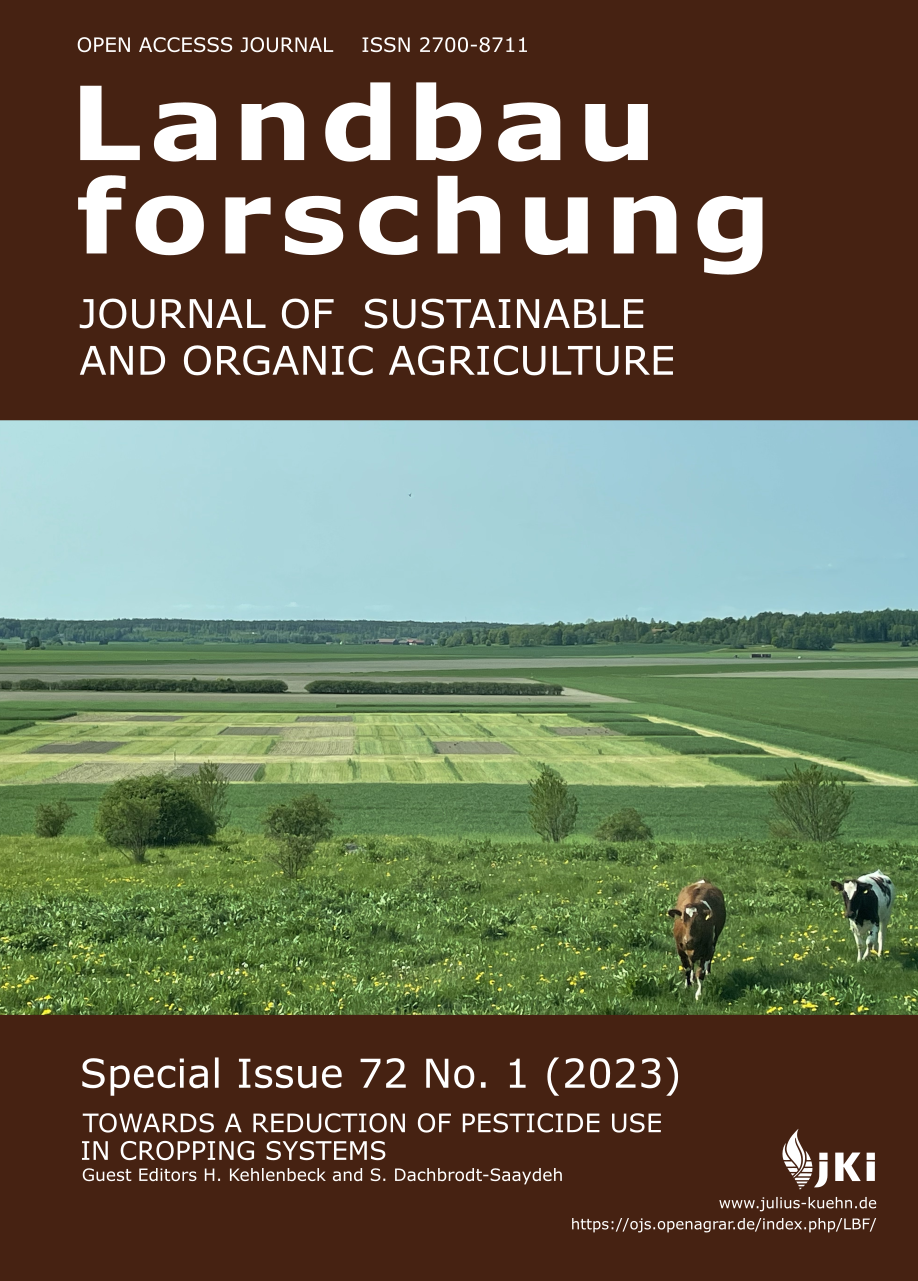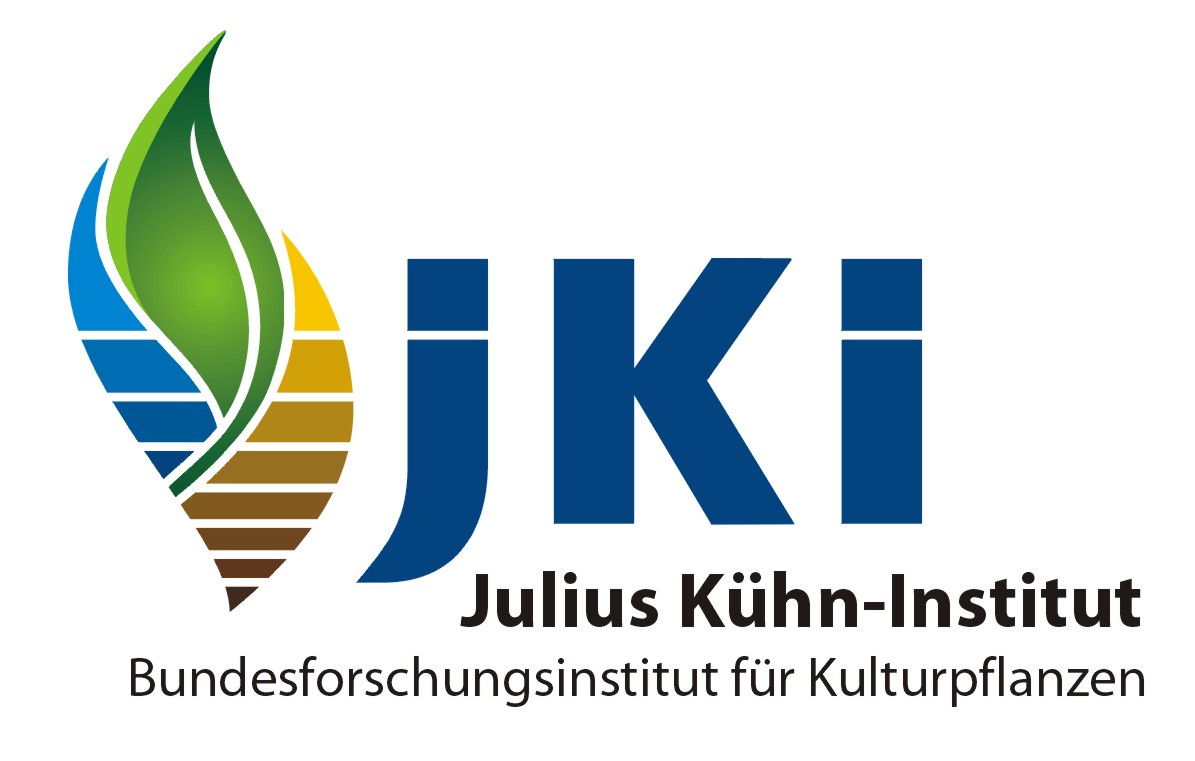Potential of pesticide reduction and effects on pests, weeds, yield and net return in winter rye (Secale cereale L.)
DOI:
https://doi.org/10.5073/LBF.2023.01.02Keywords:
long-term field trial, pesticide reduction, weeds, fungal pathogens, insect pests, winter rye, net returnAbstract
Reducing the intensity of pesticide use is a societal and political issue. One way to realize this is to reduce the dose of applied pesticides. The impact of strict dose reductions on yield and net return in winter rye was examined in a longterm field trial at the experimental field of the Julius Kühn Institute in Dahnsdorf (Brandenburg) over a 13-year period (2004-2016). Pesticide treatments included a situation-related strategy (100% strategy) and two other strategies in which the doses were reduced by 25% and 50% compared to the 100% strategy. Treatment decisions were based on control thresholds in the 100% strategy. Fungal pathogens and weeds occurred in all years and had to be controlled. Insect pests were negligible. Averaged over all years, there was a significant difference of 4% in yield between the 100% strategy and the 50% strategy. In contrast, no differences were found in terms of net return. There was also no accumulation of weeds in the reduced strategies. This positive result is due to the close monitoring of the plots as well as the six-year crop rotation and shows that it is possible to reduce pesticide use in winter rye.
Published
Issue
Section
License
Copyright (c) 2023 Bettina Klocke, Christina Wagner, Sandra Krengel-Horney, Jürgen Schwarz

This work is licensed under a Creative Commons Attribution 4.0 International License.









